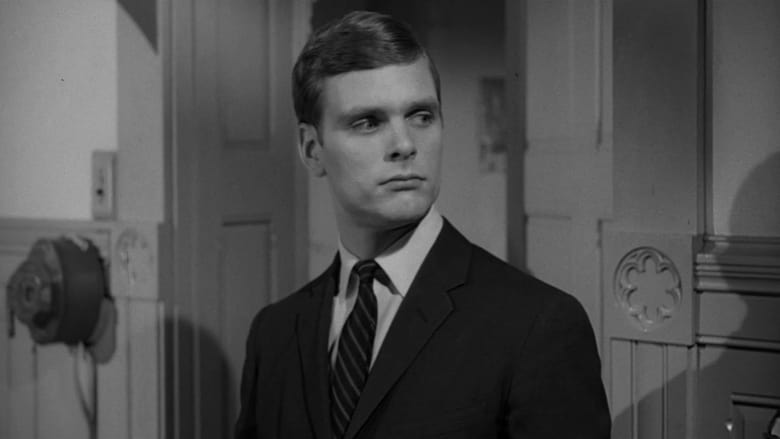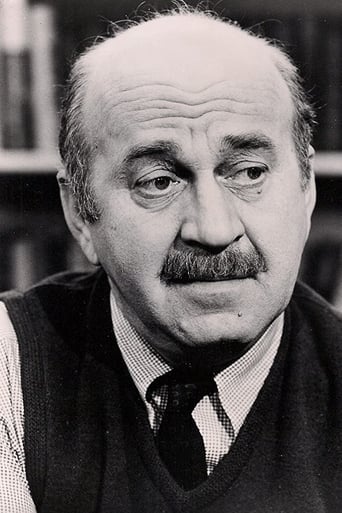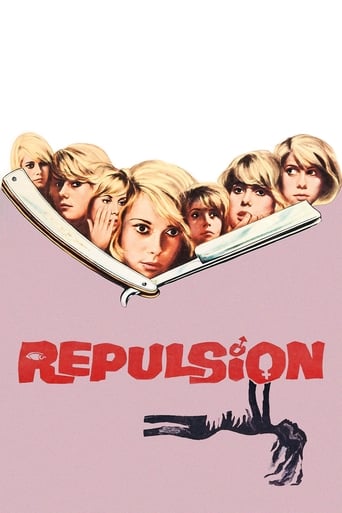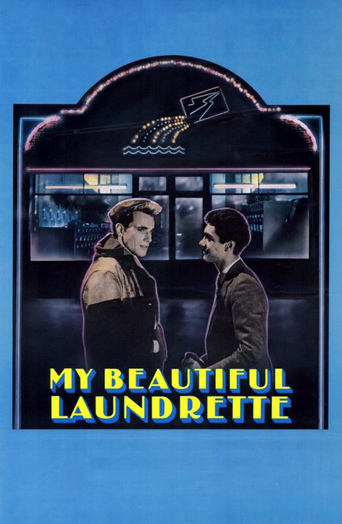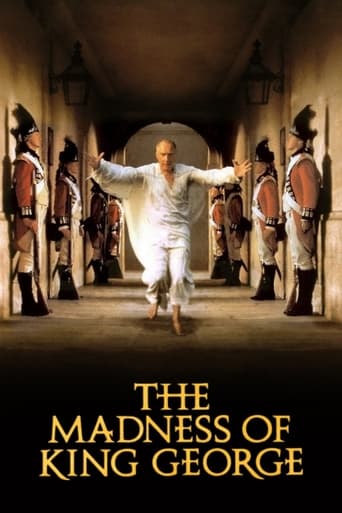David and Lisa (1962)
Teenager David Clemens develops a hysterical fear that he will die if he comes into physical contact with another person. Perturbed, David's overbearing mother places him in a home for mentally disturbed young people, but David remains withdrawn from the other patients and his psychiatrist. Over time, however, David grows interested in 15-year-old Lisa, who suffers from multiple personalities – one who can only speak in rhyme, and the other, a mute.
Watch Trailer
Cast


Similar titles
Reviews
Wonderful Movie
People are voting emotionally.
Blistering performances.
Through painfully honest and emotional moments, the movie becomes irresistibly relatable
Poor Mrs. Clemens! One more castrating mom to add to our culture's most wanted list. She's wanted for turning her son, David, into an "obsessive-compulsive." By depriving him of love, pushing him towards success and achievement; by being more dominant than her milk toast husband; by being sexy but asexual, beautiful but cold, she must suffer the hostility of not only her son, but to a lesser extent, her husband, and her son's doctors--add too her son's fellow "inmate," a sex-crazed teenager, who has "knocked up 13 girls," and whose mom is a hooker.Anyway, David is deathly afraid of time and death, and he associates these with his upper class mother. Because she is unfeeling, non-communicative, and non-protective, touch itself can kill him. If he is emotionless, it's because his mother is. If he is totally shut off to the world, than his perfectionist mom's to blame. If he cannot develop, it is, in Freudian fashion, because his mother lords it over his father, thus making David mom-dependent, and his father, David's way into the larger world, "nothing but a marshmallow." So it is that Mrs. Clemens is both ice and earth, remote and engulfing, unloving and clinging--to the boy she gave birth to. It's mother-time and mother-love which make touch terrorizing to David. And his outright expressed hatred of her is viewed by him as a step to healing: "parents don't like you when you're sick, and when your well, either." Mrs. Clemens, simply put, is too much mother, who mothers too little.The true mother is the woman holding her son in the railway station, on the night that David escapes his toxic parents' home. This mother's love is unconditional, sensual, and giving and David claims her as his very own mother. With her as a mom he might in Dr. Swinford's words "take a chance and open up and let love in." Interesting how a scene of blissful maternity can jump start David's recovery.Lisa, his "patient" and dear female friend is also a prop to his wellness. Lisa, unlike David, has no history, no mother to blame for her multiple personalities. She is free-floating, adorable, innocent, child-like (several years younger than David) and earthy in her dark features. She's capable of a kind of psychic communication, rhyme-speech, and expressed intimacy. She is, in other words, a blessing to David. She's a "pearl of a girl," in his words--words that awaken sensual awareness in both--because she is spontaneous and vulnerable and serves as David's inner self or soul. One of her telling rhymes is "rhymes, time, slime" which seems to point to David's second birth, and to herself as one of its mediators.Dr. Swinford or "Alan" to his "students" or "inmates" is another of David's safe mediators. He fathers David's development through a kind of liberal, humanistic, "do your own thing" approach. Any constraint is suspect, and creativity is the ultimate form of therapy at his private institution. He is satisfactory to David despite the fact that he passively absorbs more hostility from him than does his hapless father from his mother. His non-judgmental guidance, in a sense, seems to make him a third female kind of figure in David's recovery, but Dr Swinford, in his professional capacity---he's a psychiatrist and a more convincing father figure whose role and profession he will follow--also serves as model for David's autonomy.That autonomy or rebirth is equivalent to recovery or David's integration into love, authority, and society. This means, above all else, a transcendence of his mother and his worldly birth. But doesn't his rejection of his mother include his rejection of "rhyme, time, slime?" So how will he accept the world without accepting time? Perhaps because he's discovered male time--and male identity (his terror of freak shows and the Geroge/Georgina character). This newly discovered order is controlled, ordered, authorized-- the very stuff that he has abhorred and ridiculed to date, but which now can be viewed differently from a select identity. He has entered Freud's history (the clock is fixed) and left his mother's behind.The towering museum columns between which the final scene is shot is proof of his elevation into manhood. The tall blond young man walks off into the morning Light (why did it take him all night to reach the museum?) having dispelled the darkness, hand and hand with his little brown-eyed girl. Isn't it ironic that in the mutual rescue scene at the museum that it is David who allows Lisa to grasp his hand when--his rejection of her in the piano room is why she escaped and is endangered--she should be allowing him to touch her.
"David and Lisa" (1962) directed by Frank Perry was an astonishingly new kind of approach about adolescents traumatized by the adult's world for any reason or fault to adaptation on a competitive society. Because their own lyricism, not facing a reality very different of the sick turmoil of thoughts in a disturbed mind, turned only for self artificial abyss of imagination. Indeed, it was by no means a winning game inside a psychological development, instead criticizing the model of cure by electroshocks or drug medication installed in the fifties, as though a sleeping world should be the channel for cure and only that one. But the foolish David and the nervous Lisa, as tale for everybody with a problematic tale from childhood at home - having at the time here the alternative for being understood little by little -, whose contagion by a fake world of aggressive adults it was actually enormous, they were risking too then losing their own minds in an empty reality, but both in helping each other it was nonetheless better than worst. There is in this movie, made as a documentary in a hospital, a kind of rare tenderness between them as young couple of characters, when they discovered each other as main stable twin soul condition for coming out of their own unreality, only for touching the walls and listening her dislocated voice-over. Now their fingers are applied in their own affair of learning love, like the other side of the separated foolish mind, by the help of a distant doctor in mental disease as place of transition for another state of healthily body art, without the spatial environment of a house of arrest for forcing cure. The way that director Perry and wife Eleanora constructed this movie at the time, out of the traditional melodrama concerning the house arrest for mental diseases for fools with a psychoanalytic expertise, it is the strength of the subject illustrated like a television direct to the souls. Searching of lyricism and authenticity more than legitimacy, the characters never acting as in a psychological plot - for the case without at short term any cure, than loving each other or deepen in prolonged schizophrenia of very young people - in the sense of fiction as we habitually had been told in the recent past fifties - with a score of barbiturates and suicides not understated nor sensationalistic to the public opinion from the time -, namely in a big town and its outskirts. Where at an old abandoned convent this theatrical experiment was rehearsal for the screen, famous till this date at the beginning of the independent production out of self destructiveness of the creators then. This tale was about love between a boy who never talks since he enters there and a girl who doesn't like being touched on her skin.
Fruedian psychology must have been real real popular in the early sixties. Between Psycho, The Manchurian Candidate, Dr Straelove, and this dime store matriarchal film making seem to hit a cheesy crescendo. Why? This seems to be an interesting enough premise for a movie, but (at least in today's standards) seems meek and unwilling to commit itself to anything more than skipping along the surface of it's quirky characters. Plenty of interesting elements lurk right beneath the surface, but in this heavy handed melodramatic bird's stool, it falls flat.The movie does serve as an oddity (or perfect example) of lazy film making, perhaps because of budget. Every scene is repetitive. The movie follows so closely to the idea of one set set-up, establishment, and fade out, that it seems less and less like a movie and more and more like a series of scenes. To a modern audience it should seem striking. Quick cuts, and lead in being today's norms.5 out of 10, not bad, but Jimmy Stewart in Harvey is less of a waste of time.........
Very quiet drama about two mentally disturbed people, David (Keir Dullea) and Lisa (Janet Margolin), helping each other out to cure themselves.This was one of the art films of the early 60s---it was made independently, shot in stark black & white, has threadbare sets, poor lighting and lousy sound. Still, this was a big hit. It was a very sensitively handled movie of a then touchy subject (mental illness). And Dullea gives an excellent performance as David. Margolin is also good as Lisa. This movie was supposed to "make" both of them--sadly, it didn't.It's all well done but I can't say I liked it. There's absolutely no edge to the story or characters at all. This movie goes out of its way to make sure it won't offend anyone and, unfortunately, this makes for a very dull movie. Still, for its time, this was groundbreaking. Worth seeing for the acting alone.Hard to believe that director Frank Perry later on made the camp classics "Mommie Dearest" and "Monsignor"!


